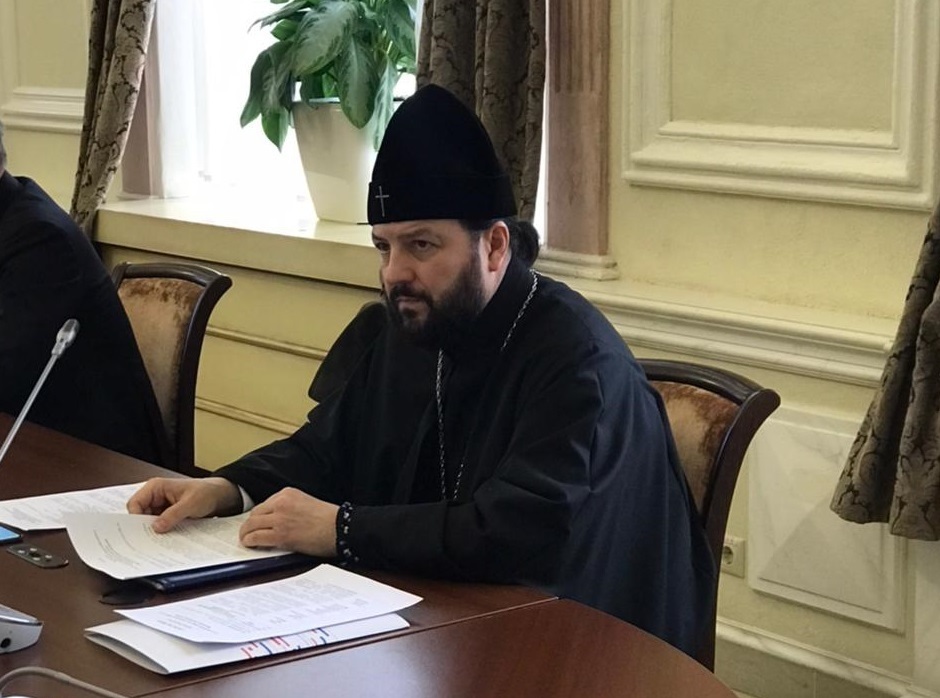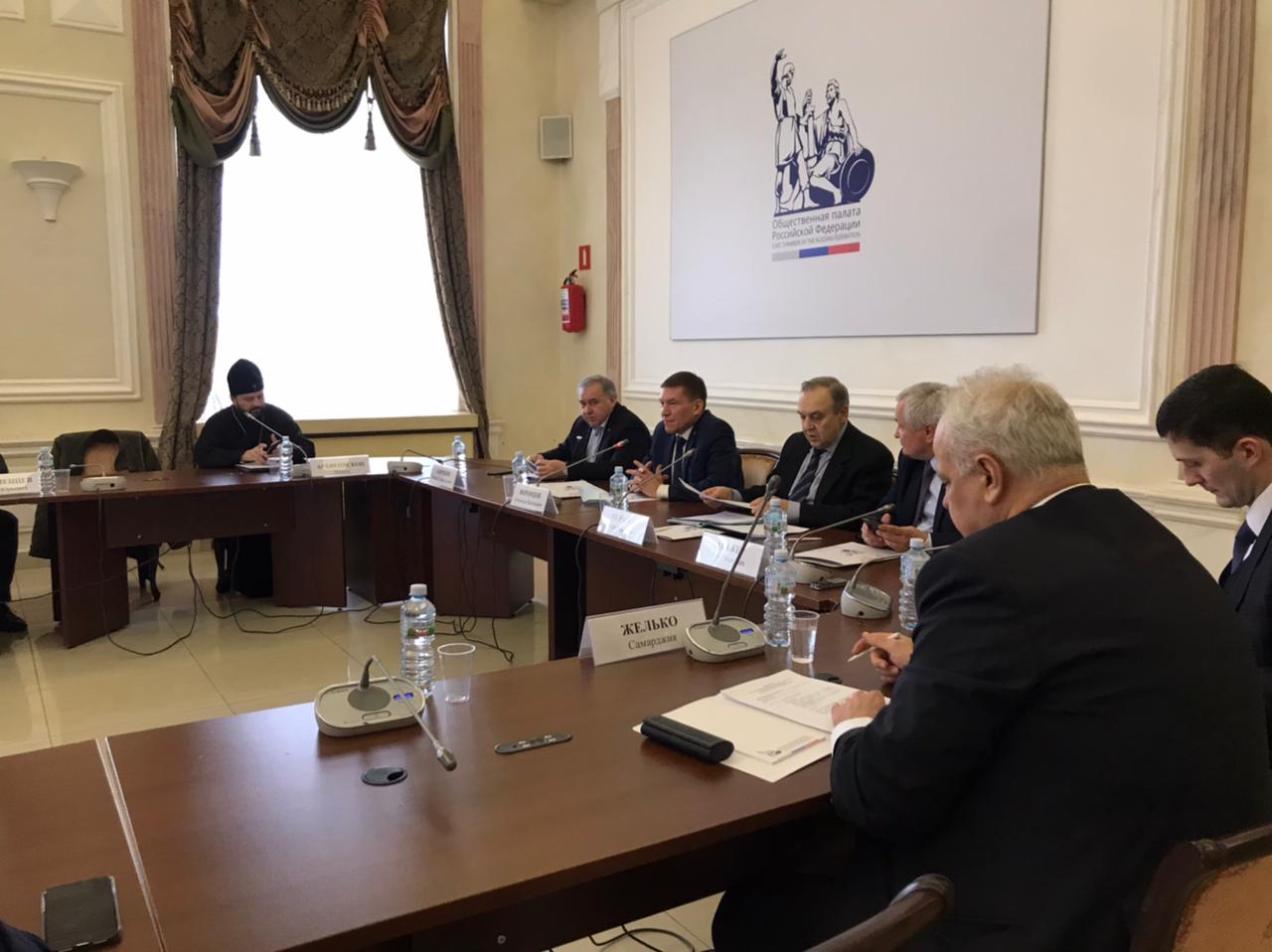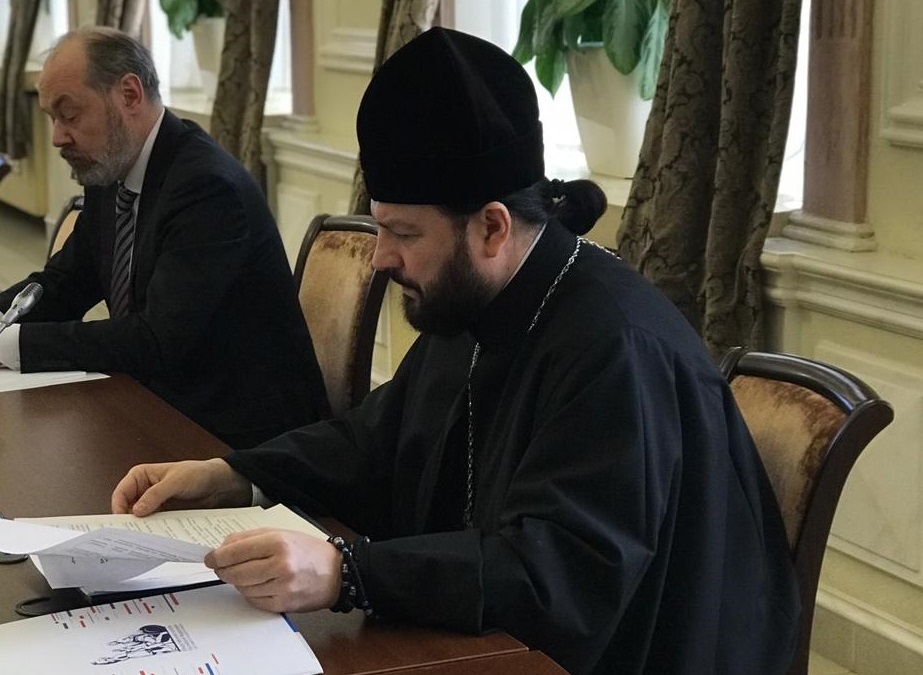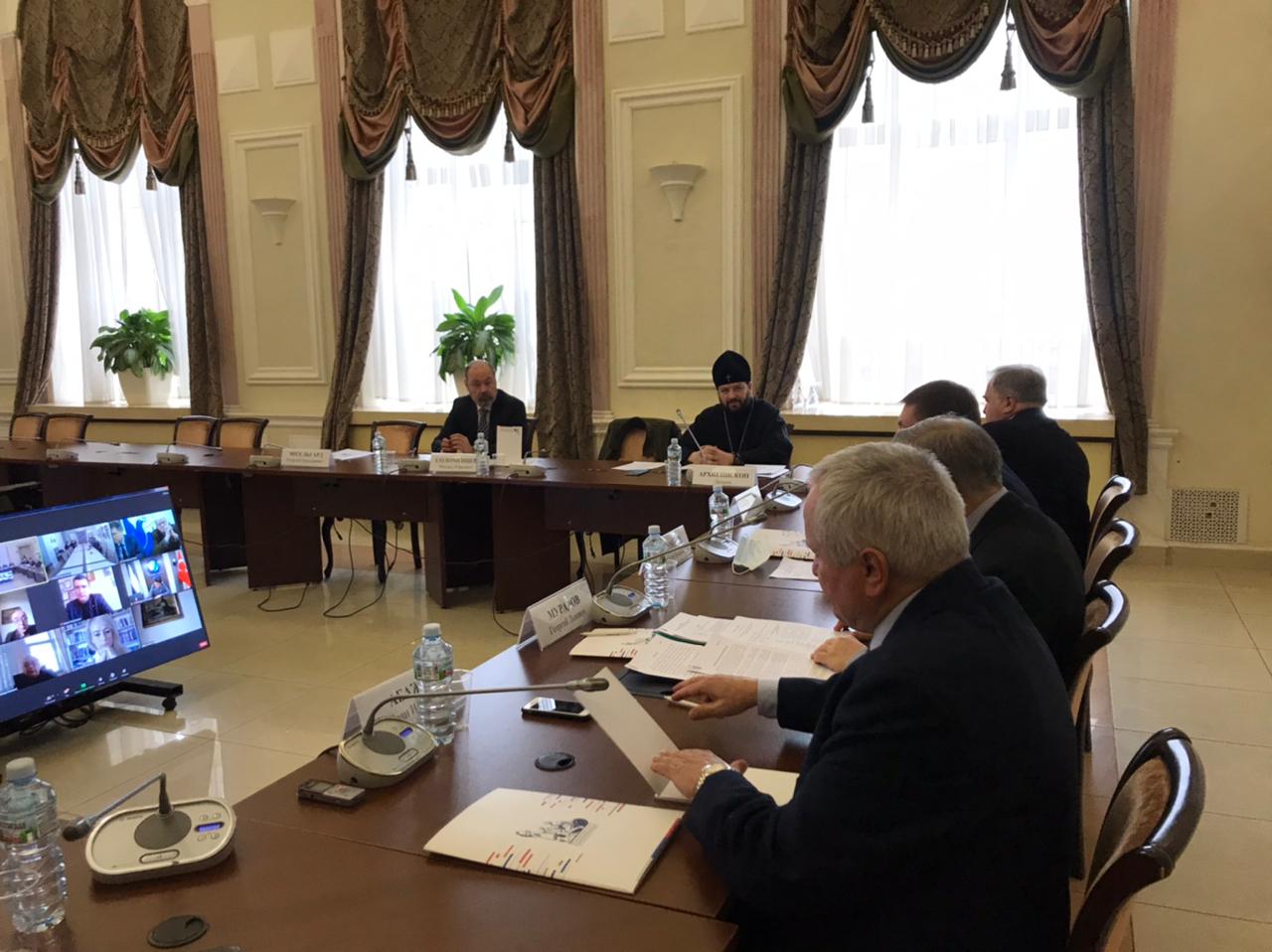
Department for External Church Relations
The site uses cookies to help show you the most up-to-date information. By continuing to use the site, you consent to the use of your Metadata and cookies. Cookie policy
Deputy chairman of the DECR speaks on schism as a means of geopolitics




On 1st March 2021 in Moscow the Public Chamber of the Russian Federation hosted a round table on the topic of the role of civil society in guaranteeing stability in the Black Sea and Balkans region.
The event was organized by the Public Chamber’s commission on security in conjunction with public observation commissions, the permanent representation of the Republic of Crimea to the Russian President and the business and cultural centre of the Republic of Crimea.
The session of the round table heard a presentation by the deputy chairman of the Department of External Church Relations of the Moscow Patriarchate the archbishop of Vladikavkaz and Alania Leonid entitled ‘Church schism in Ukraine and in Montenegro as a means of geopolitics.’
Noting that on the territories of the Black Sea and Balkan regions there are located dioceses of seven of the fifteen Local Orthodox Churches, archbishop Leonid touched upon, in particular, the situation in Montenegro, where in 2019 a law was passed allowing the authorities to confiscate old church buildings and monasteries fr om the Serbian Orthodox Church, the bulk of whose flock is made up of Orthodox Montenegrins. The adoption of this law provoked a sharp reaction amongst the population of Montenegro. Archbishop Leonid reminded the round tables’ participants that “protests engulfed the whole country. Many thousands of people, in spite of the restrictions imposed by the pandemic, took to the streets to state that they had no intention of surrendering their holy sites. The bishops of the Serbian Orthodox Church in Montenegro, including the ever-memorable metropolitan of Montenegro and the Littoral Amphilochius, fought for this discriminatory law to be abolished.” He also noted that repeatedly speaking out in defence of the canonical unity of the Serbian Church were the Patriarch of Moscow and All Rus Kirill and the holy synod of the Russian Orthodox Church, as well as the primates and bishops of the Churches of Jerusalem, Rumania, Poland and the Czech Lands and Slovakia.
The archbishop stated that ultimately in January of this year the president of Montenegro Milo Đukanović was obliged to sign into the law on religion and freedom of conscience amendments proposed by parliament which would nullify the legislative acts deemed to be discriminatory towards the Serbian Orthodox Church.
The deputy chairman of the DECR drew a parallel with the situation in Ukraine wh ere the former president Poroshenko also backed uncanonical ecclesiastical structures.
Speaking of the ‘autocephaly’ of the so-called ‘Orthodox Church of Ukraine’, proclaimed in 2018 with blatant disregard for ecclesiastical canons, archbishop Leonid pointed out that “from the outset this was a political project aimed at weakening the Russian Orthodox Church, at dismembering world Orthodoxy and at the further division of the peoples of Russia and Ukraine.”
He also pointed out that the project of setting up the ‘OCU’, in which the Patriarch of Constantinople Bartholomew took a direct and leading part, fits in with the logic of geopolitical confrontation in the modern world.
“It is my firm hope that that this schism within world Orthodoxy, instigated by external political forces hostile to Christ’s Church, will not last long. Today we all have to stop and take stock over what is happening, and act not at the direction from overseas secular functionaries but as the Holy Spirit tells us, as our Christian conscience and the sacred canons of the Mother Church direct us,” concluded the archbishop of Vladikavkaz and Alania Leonid.
The event was attended by members of the State Duma, the Russian Foreign Ministry, the Public Chamber of the Russian Federation and various public figures and researchers.
DECR Communication service
Patriarch
Sermons
05.01.2026
24.12.2025
24.01.2021
06.11.2020